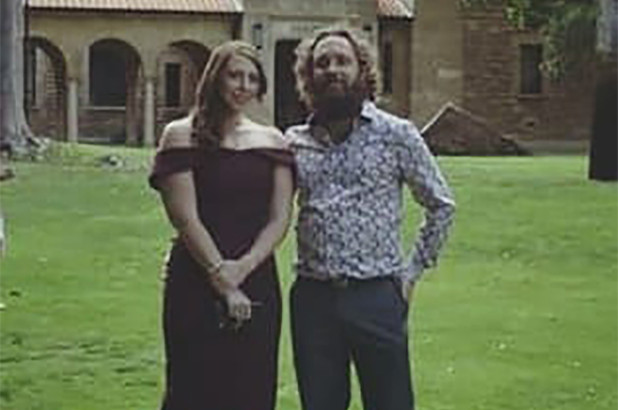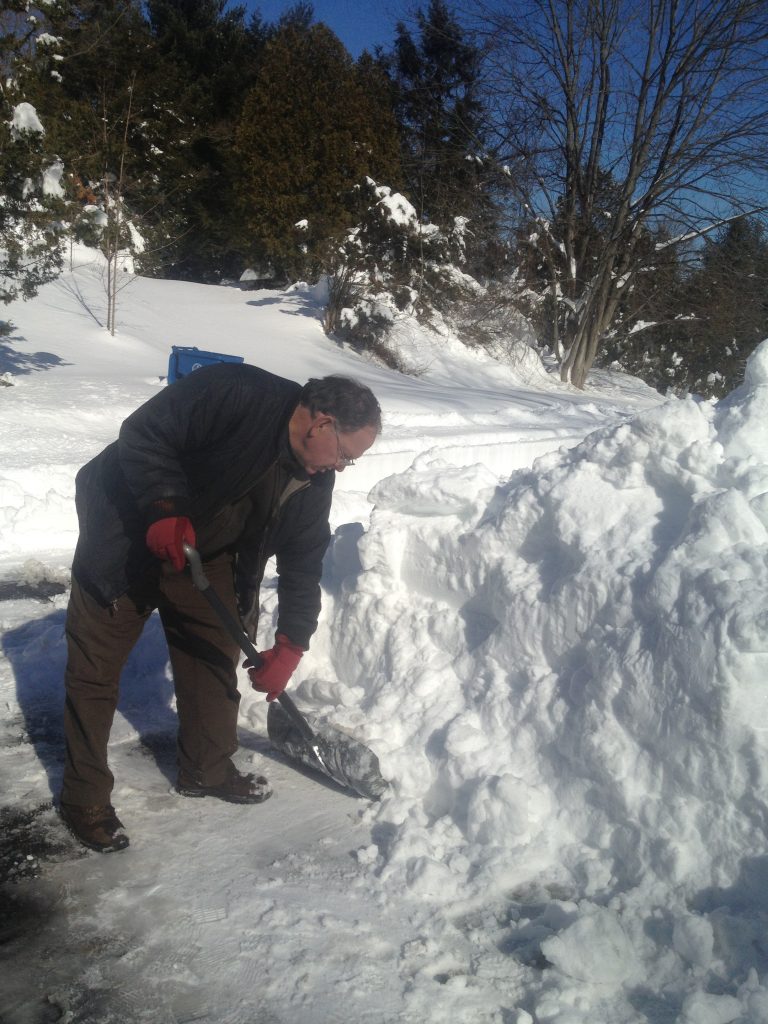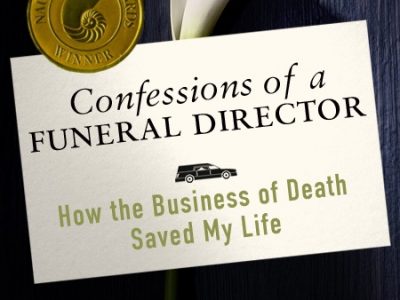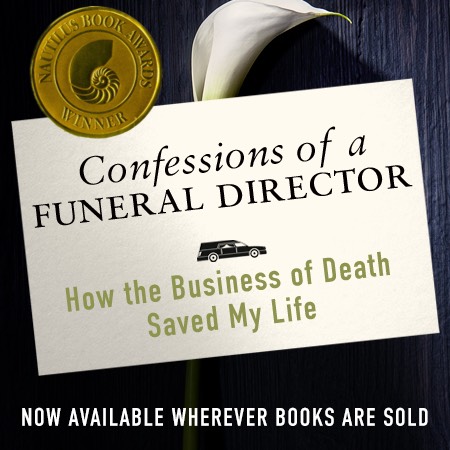An “exploding dead body”, a “coerced cremation” and a lawsuit

Here’s the story:
A Montana mortuary business must pay a woman $50,000 after her husband was cremated against his wishes.
The Great Falls Tribune reports a jury found a mortician at Miser Mortuaries in Conrad negligent in the decision to cremate 64-year-old Robert Yeager of Ulm after he died of liver and heart disease in October 2012.
Enid Yeager told jurors that mortuary staff pushed her toward cremation because the larger casket needed to bury her husband would be costly.
Miser’s attorneys said mortician John Nash simply recommended Robert Yeager be cremated because he couldn’t have an open casket funeral due to the swollen condition of his body. Nash said Enid Yeager signed off on having him cremated.
Jurors on Wednesday found both the mortuary and Enid Yeager partially liable. She had sought $1 million in damages. — The New York Times
All in all, I like the ruling. We all like black and white cases, but this one is painted in grey. I don’t think this was a matter of maliciousness on the part of either party, but rather a communication problem, a problem that rests more heavily with Mr. Nash.
Here are some more details that help flesh out the case:
The conflict of this case was borne out of the complications in burying Robert in a casket: he died of liver and heart disease and, as a result, had grown considerably swollen with fluids shortly before and after his death. Court records and testimony included mention of splitting skin, building gases and leaking liquids.
He would have fit in an oversized casket, Miser’s mortician claimed to have told Yeager. But she alleged the funeral home staff pushed her toward cremation because the oversized casket would be very costly, and he “could not have a casket ceremony” because her husband’s body “would explode.” — Great Falls Tribune
I don’t know about you, but I wouldn’t mind my body exploding at my funeral. In Oprah voice, “Everyone get’s a piece of Caleb. You get an arm! You get a leg!”
Who am I kidding, though. Nobody has ever wanted my body.
The funeral business rests on the principle that we exist to serve you … within reason.
Having an open casket viewing for a deceased person who is in the early part of active decay generally not within reason (how he got to this point is the question I’d like to know. I digress.). For those of you who have been around a decomposing body, you know of the troubles in which I speak. We’ve all smelled roadkill in the hot months of summer. That smell is tacos to human decompositions surströmming. Humans just smell the worst. The last thing you’d want is an open casket viewing for a decomposing body. It would literally be nauseating for everyone who came to the funeral with a sense of smell.
However, if you can’t have an open casket viewing, cremation generally isn’t the next step down on the ladder of options. A closed casket with the body present is the next step down the options ladder.
Why did Mr. Nash suggest cremation instead of a closed casket? I suspect that the underlying and unspoken crux of this, specifically as it relates to the funeral home, may have had less to do with the troubles that come with a decomposing body and more to do with two other things:
1.) Money.
I find it interesting that the reports specifically mention that Mr. Yeager needed a larger casket for his swollen body, a casket that would have cost more money … perhaps significantly more money. Larger caskets often necessitate larger vaults, and larger vaults demand more grave digger costs, all of which can easily incur an added $1,000 to $3,000 in cash advances, half of which is associated with the cemetery.
Funeral directors often tend to suggest less expensive options … like cremation, especially if funds are limited. And there’s nothing wrong with suggesting a less expensive option. I do it all the time. In fact, I usually tell the family that I’m going to show them the least expensive options first, and then they can go from there.
2.) Communication.
This is where the problem happened. Obviously. Mrs. Yeager wanted something. Mr. Nash didn’t entirely hear her. Or, Mrs. Yeager wasn’t able to express it well enough for Mr. Nash to hear her because she had “grief brain.” But, Mr. Nash should have recognized her “grief brain” and listened a little more deeply.
Look, I don’t think Mrs. Yeager is sue-happy and just wanted to get a quick mil from the funeral home. I think she is genuinely hurt and upset. And she has every right to be.
I also don’t think Mr. Nash the funeral director was out to get Mrs. Yeager. I have no doubt he had good intentions.
What I do know is this: Funeral directors (and this includes me) need to learn to practice deep listening and mindfulness. In fact (and I’m talking to us funeral directors), if you notice yourself unable to practice deep listening, it’s time for a sabbatical. Or it’s time to find another job (there’s no shame in quitting … too many funeral directors stay in this business far past their expiration date … and there’s an expiration date for EVERY career).
For those of you in the business, here are some mantras you’ve likely heard:
“Mindfulness over money.”
And.
“Service over sales.”
You know those by heart. But here’s a level two funeral service mantra:
“Listening over talking.”
Because, for us as funeral directors, if we want to serve well, we have to deeply listen.
*****
If you like my writing, consider buying my 2017 Nautilus Book Award Gold Winner, Confession of a Funeral Director (click the image to go to the Amazon page):
About that couple that fell off a cliff while they were taking a selfie (boring thoughts only a funeral director would think of)

via facebook
News stories like this are absolutely horrible. The emotional toll that these deaths will have on their family and friends will be debilitating on multiple levels. You just don’t recover from this type of news.
As a funeral director, though, I look at such a situation through a different lens, especially since this couple weren’t Portuguese natives.
These are the initial reports:
Australian Michael Kearns, 33, and his British girlfriend Louise Benson, 37, were standing on a wall overlooking the picturesque Praia dos Pescadores beach in Ericeira early Tuesday, when their phone slipped, Perth Now reported.
Authorities think the pair reached out to grab the cellphone, lost their balance and fell 98 feet to the rocky beach below. — Via New York Post
Fishermen discovered the bodies and reported that it was like a “horror scene” and that the couple’s bodies were “shattered.”
At our funeral home, we only tend to handle international ship-outs or ship-ins about every other year. Most of the people in the Parkesburg area are local. They’re the type of locals who rarely travel across the Mississippi, and hardly ever travel across the Atlantic or the Pacific.
Unless you’re a funeral home that deals specifically with a certain demographic (maybe a city funeral home whose main clientele are Greeks who want to be shipped back to Greece when they die), most funeral homes — like ours — aren’t experts in international shipping of human remains. Why?
*****
BECAUSE EVERY COUNTRY IS DIFFERENT. Almost all countries require the body to be shipped back to the homeland in what’s called a hermetically sealed (airtight) shipping container so that no fluids leak out during transportation OR sometimes you can bypass the hermetically sealed container if the body is embalmed (fun fact: when you fly, there’s a chance a corpse is being shipped in the cargo bay). For the US, the corpse either has to be in a sealed container or embalmed.
Sometimes the cause of death has to be determined before shipment can take place because if the death was caused by an infectious disease, shipment is much less likely to take place. And as you may know, the cause of death for accidental or suspicious deaths can take weeks to determine, leaving the family of the deceased waiting and waiting and waiting for the shipment to take place.
THE PAPERWORK IS A MILE HIGH. For Michael Kearns and Louise Benson, their bodies are subject to both Portuguese rules and regs, AND British and Australian rules and regs. For most of us in the funeral business, the paperwork for international ship-outs can be so difficult (often times you have to know the right people at the Embassy) we contract it out to a company that deals solely with international ship outs.
Often times, the official approval from the receiving nation can itself take weeks. In other words, the bodies of Michael and Louise might have to extend their stay.
THE MONEY. To have a body shipped to the US will generally cost somewhere around $5,000, but it often tends to be more. I have a Greek friend who shipped his son back to Greece for a cost of $20,000 (this wasn’t through our funeral home).
CREMATION IS USUALLY THE CHEAPEST AND LOGISTICALLY EASIEST OPTION. If you can stomach it. The problem with cases like Michael and Louise is that — at least for tragic deaths — the family usually wants to see the body. There’s this nagging feeling that “he/she just can’t be dead. I don’t believe it.” And the only way they can confirm that it’s actually true is to see the deceased with their own two eyes. That desire makes cremation a tough choice.
SHATTERED BODIES. This is just such a tough case for the families. Not only are they dealing with sudden and tragic deaths of their loved ones in another country, but their bodies are wrecked.
*****
IT’S NOT A LAUGHING MATTER: Here’s the problem with the word “selfie”, specifically as it relates to Michael and Louise. Pamela B. Rutledge Ph.D. writes, “Selfies frequently trigger perceptions of self-indulgence or attention-seeking social dependence that raises the damned-if-you-do and damned-if-you-don’t specter of either narcissism or low self-esteem… If the people in selfies aren’t famous or being paid to pose, then it must indicate a moral failing and they are labeled bragging, attention seeking, self-focused or narcissistic” (Via Psychology Today).
I don’t think Michael and Louise’s death would have made the news if they simply fell to their deaths. But because they fell taking selfies, it almost humorous or at least a moral lesson. Because they died taking selfies, the perception is that it diminishes their deaths … that we can snicker at their deaths like we’d snicker at a drunk who walked in front of a train.
But it’s not funny. And their deaths shouldn’t be diminished. What their families will go through over the next week or so will be absolutely horrible as they negotiate what they need to do.
*****
*****
If you like my writing, consider buying my 2017 Nautilus Book Award Gold Winner, Confession of a Funeral Director (click the image to go to the Amazon page):
The Unknown Underground of Funeral Director Fight Clubs

Photo Author: emilykneeter
Author URL: https://www.flickr.com/people/emilykneeter/
License: Creative Commons Attribution License
Unlike the Chuck Palahniuk novel and subsequent movie, these fight clubs don’t happen in basements. They happen in Facebook groups. And unlike the movie, these Fight Clubs aren’t a way to let out existential steam…. these fighters are out for blood.
There’s SO MUCH ARGUING IN THE FUNERAL INDUSTRY!!! For those of you that are in closed Facebook funeral groups, you know. My god, you know. It get’s so serious in these groups that one faction will try to have the funeral licenses removed from another faction. One faction will report perceived offenses to the state board, hoping to get an enemy they’ve made in one of these Facebook groups fined or fired. And it’s worked. On more than one occasion, these Facebook funeral director fights have gotten people dismissed from their jobs, in some cases blacklisted. Livelihoods have been ruined by these kerfuffles.
It’s gone so far that one faction will hack another faction’s funeral home website. One faction will splinter off from one group to create another group that makes fun of the original group. One faction will bully the other to no end until the victim leaves the group.
It’s dirty. It’s drama. It’s a legit reality TV show where there are about a dozen main characters and the rest of us just sit back and watch the shit show.
Embalmers / funeral directors are like the Protestant / Evangelical / Baptist Churches. It’s common knowledge that Protestants / Evangelicals / Baptists have a history of breaking off from each other to create new churches that distinguish themselves by being different than the original. I know because I grew up in such a splinter church that broke off from another because we had a disagreement over the morality of the insurance coverage offered to the pastor. I learned a couple things along the ways about people, opinions, maturity, and unity in the midst of individuality.
If you’re in the funeral director fight club, you have absolutely no desire to hear me out. Most of you have already expressed your feelings of antagonism towards me. But for those of us who watch the funeral director fight club, here are my thoughts on where things can go wrong:
TWO DIFFERENT WAYS CAN BOTH BE RIGHT
You live in New York City. Your buddy lives in Nashville. You’re both driving to Orlando for a family vacation at Disney World.
The best way for your buddy is to drive the 75 straight to Orlando. The best way for you is probably 95 all the way down. It’s utterly silly for you to argue with your buddy by telling him that “95 is the only way to Orlando.” Because different locations require different approaches. And your starting point often determines your journey. As long as you both end up in Orlando, you did it right.
If you’re in funeral service, different locations require different approaches. It’s sometimes possible that both funeral director combatants are right because we all come from different towns, different cultures, and from a different set of expectations. What’s right for funerals in Parkesburg might be wrong for funerals in New York City. What’s expected of me in Parkesburg, might not be expected of me in Nashville. What you emphasize might be different than what I’m expected to emphasize.
DON’T BASE YOUR IDENTITY ON YOUR JOB
Because if you do, when people question your job, it’s like they’re questioning you. When they question how you do your job, it’s like they’re questioning how you live your life. When they question your job performance, it’s like they’re questioning your value. When they question your job acumen, it’s like they’re questioning your intelligence. When they disagree with how you do things, it’s like they’re disagreeing with your lifestyle.
If the funeral business is your identity, any discussion about how you do your job, the correct way to do your job, etc. becomes incredibly and intensely personal. Because I’m not just questioning your job, I’m questing your very identity.
When discussions about funerals become charged, I step away. Not because I don’t have an opinion, but because my identity is wrapped up in this business, but this business is not my identity.
FUNERAL FUNDAMENTALISM:
Here’s how religious fundamentalism works. There are three tiers of belief. The strong set of beliefs is what you could call “core beliefs”. These are the beliefs you hold most deep, and they usually have to do with who and what you love. Secondary to “core beliefs” is what you could call “values”. Values are practices and attitudes that we believe best enable us to serve our core beliefs. And the last category is what you might call “opinions.” This is the category where two people who share the same “core beliefs” and “values” simply differ and it’s no big deal (unless you want to make it one).
Fundamentalism doesn’t recognize these tiers. For the fundamentalist, everything is a “core belief.” Everything is worth fighting over. Opinions aren’t just opinions. Values aren’t just values. There is no context. There is no relativity.
The funeral fundamentalist has a problem with anything new. They have a problem with creativity. They have a problem with younger people offering a contextual perspective BECAUSE THE CORE BELIEFS HAVE ALREADY BEEN SET.
NARCISSISM
There’s a fine line between being a funeral director and being a narcissist. We’re called to be directors, to display confidence, knowledge, authority and strength during people’s weakest moments. But this environment that asks us to lead can too often enable us to self-enhance. We talk over our heads, project authority in situations that are best left to the family and tense up in disdain whenever we’re questioned.
Unfortunately, many funeral directors become narcissists (the funeral industry also has a tendency to harbor narcissists who gravitate towards the pomp and professionalism of funeral service). And while it would be easy to simply call these guys and girls “jerks”, the situation is usually more complex. For many, the tendency for funeral directors to become self-absorbed isn’t a product of nature, but of nurture. And recognizing the environmental factors that produce narcissism in funeral directors is a big step in making sure we keep focused on the heart of the funeral industry: serving others.
Until the stupid fighting stops, you’ll know where you can find me:
*****
If you like my writing, consider buying my 2017 Nautilus Book Award Gold Winner, Confession of a Funeral Director (click the image to go to the Amazon page):
When you have depression it’s like it snows every day.
***I didn’t write this. And after some research to find out WHO did write it, I was led here — a Reddit Suicide Prevention Megathread – although the author’s name isn’t cited. If you know who wrote it, let me know because I’d love to credit them.***

Author: Lisa Jacobs
Author URL: https://www.flickr.com/people/bunnygoth/
Title: IMG_0940
Year: 2013
Source: Flickr
Source URL: https://www.flickr.com
License: Creative Commons Attribution-NoDerivs License
License Url: https://creativecommons.org/licenses/by-nd/2.0/
License Shorthand: CC-BY-ND
When you have depression it’s like it snows every day.
Some days it’s only a couple of inches. It’s a pain in the ass, but you still make it to work, the grocery store. Sure, maybe you skip the gym or your friend’s birthday party, but it IS still snowing and who knows how bad it might get tonight. Probably better to just head home. Your friend notices, but probably just thinks you are flaky now, or kind of an asshole.
Some days it snows a foot. You spend an hour shoveling out your driveway and are late to work. Your back and hands hurt from shoveling. You leave early because it’s really coming down out there. Your boss notices.
Some days it snows four feet. You shovel all morning but your street never gets plowed. You are not making it to work, or anywhere else for that matter. You are so sore and tired you just get back in bed. By the time you wake up, all your shoveling has filled back in with snow. Looks like your phone rang; people are wondering where you are. You don’t feel like calling them back, too tired from all the shoveling. Plus they don’t get this much snow at their house so they don’t understand why you’re still stuck at home. They just think you’re lazy or weak, although they rarely come out and say it.
Some weeks it’s a full-blown blizzard. When you open your door, it’s to a wall of snow. The power flickers, then goes out. It’s too cold to sit in the living room anymore, so you get back into bed with all your clothes on. The stove and microwave won’t work so you eat a cold Pop Tart and call that dinner. You haven’t taken a shower in three days, but how could you at this point? You’re too cold to do anything except sleep.
Sometimes people get snowed in for the winter. The cold seeps in. No communication in or out. The food runs out. What can you even do, tunnel out of a forty foot snow bank with your hands? How far away is help? Can you even get there in a blizzard? If you do, can they even help you at this point? Maybe it’s death to stay here, but it’s death to go out there too.
The thing is, when it snows all the time, you get worn all the way down. You get tired of being cold. You get tired of hurting all the time from shoveling, but if you don’t shovel on the light days, it builds up to something unmanageable on the heavy days. You resent the hell out of the snow, but it doesn’t care, it’s just a blind chemistry, an act of nature. It carries on regardless, unconcerned and unaware if it buries you or the whole world.
Also, the snow builds up in other areas, places you can’t shovel, sometimes places you can’t even see. Maybe it’s on the roof. Maybe it’s on the mountain behind the house. Sometimes, there’s an avalanche that blows the house right off its foundation and takes you with it. A veritable Act of God, nothing can be done. The neighbors say it’s a shame and they can’t understand it; he was doing so well with his shoveling.
I don’t know how it went down for Anthony Bourdain or Kate Spade. It seems like they got hit by the avalanche, but it could’ve been the long, slow winter. Maybe they were keeping up with their shoveling. Maybe they weren’t. Sometimes, shoveling isn’t enough anyway. It’s hard to tell from the outside, but it’s important to understand what it’s like from the inside.
I firmly believe that understanding and compassion have to be the base of effective action. It’s important to understand what depression is, how it feels, what it’s like to live with it, so you can help people both on an individual basis and a policy basis. I’m not putting heavy shit out here to make your Friday morning suck. I know it feels gross to read it, and realistically it can be unpleasant to be around it, that’s why people pull away.
I don’t have a message for people with depression like “keep shoveling.” It’s asinine. Of course you’re going to keep shoveling the best you can, until you physically can’t, because who wants to freeze to death inside their own house? We know what the stakes are. My message is to everyone else. Grab a fucking shovel and help your neighbor. Slap a mini snow plow on the front of your truck and plow your neighborhood. Petition the city council to buy more salt trucks, so to speak.
Depression is blind chemistry and physics, like snow. And like the weather, it is a mindless process, powerful and unpredictable with great potential for harm. But like climate change, that doesn’t mean we are helpless. If we want to stop losing so many people to this disease, it will require action at every level.
Edit: Feel free to share this with anyone or anywhere you think it might help. We aren’t alone. Even when there’s warm bodies around when we are cold we still shiver. Offer a blanket.
Why I’ve Stopped Being Nice (And Why You Should Stop Being Nice too)

Somewhere along the way, “being nice” became a supreme virtue in the United States. In fact, I think it may have taken the place of it’s predecessor … “being tolerant.” I never liked the word “tolerant”, and I’ve come to dislike the word “nice” for the same reasons I cringed at “tolerant”
“Tolerant” is an easy virtue to dislike, not because I think we should insulate ourselves from those who aren’t like us. Not because I’m racist, homophobic, or a religious bigot. I don’t like that word because all it does is ask us to “put up” with differences. I’m a white, heterosexual male. I don’t tolerate African Americans. I don’t tolerate homosexuals. I don’t tolerate women. Tolerate is something you do with an annoying younger sibling. Tolerate is what you do when you’re stuck in traffic and can’t do anything about it.
I open my heart to understanding a person and perspective that I can only see if I’m willing to put myself in someone else’s shoes. I don’t expect them to teach me (that’s not their job). But I do ask them questions and I listen to their responses because I’m interested in loving, understanding and celebrating differences, not just tolerate the differences. I celebrate my LGBTQ friends, POC, and religious diversity because I’m doing more than tolerate, I’m learning.
“Nice” is equally as empty a term.
As a funeral director, I’m expected to be supremely nice. Like, the nicest person ever. Like, picture the nicest person you know and then double their niceness is the kind of nice funeral directors are supposed to have. And there was a point in my career that I thought “being nice” was one of the main parts of my job. But, no longer.
I stopped being a nice funeral director when I saw how nice people tend to be enablers.
I stopped being a nice funeral director when I saw how nice people can’t communicate personal boundaries.
I stopped being a nice funeral director because I learned how to say “no.”
I stopped being a nice funeral director when I saw nice people getting burned out in this industry.
I stopped being a nice funeral director when I saw that grieving people don’t actually want a nice funeral director.
I stopped being nice when I saw how it’s as fake as the “how are you doing?” greeting.
Nice is what rich people are when they’re dealing with poor people. It’s the next step after tolerance. It’s tolerance, but with a smile on top. It’s what a CEO is when he does some PR with his minimum wage workers. It’s what white people are when they go to third-world countries. It’s how you act when a salesman calls your phone.
“Nice” is an okay virtue, but it’s so far down my list of important virtues, I don’t even try anymore.
I do, however, try to be empathetic, recognizing and embracing the humanity in those around me.
I do try to be vulnerable by making myself open to different perspectives, and honest about my own.
I try to be intelligent and educated, so that I know what I know and — more importantly — know what I don’t know.
I try to be present, fully engaged with the person(s) I’m talking to (And I’ll admit, this one is the one I fail at the most).
I try to be welcoming and hospitable by enabling people to be themselves around me and not what they think they should be around me.
I also to be true to myself and set healthy boundaries for my personal life and family.
But nice? Nah. I’m not trying to give off the impression that I’m nice. In fact, when people describe me, I hope “nice” is one of the last words they use, because I’m no longer trying to be a nice person or a nice funeral director. I’m pretty sure it’s one of the least important virtues if it’s a virtue at all.
*****
If you like my writing, consider buying my 2017 Nautilus Book Award Gold Winner, Confession of a Funeral Director (click the image to go to the Amazon page):


